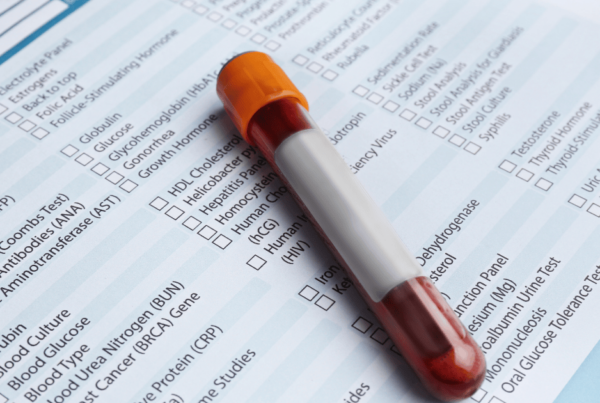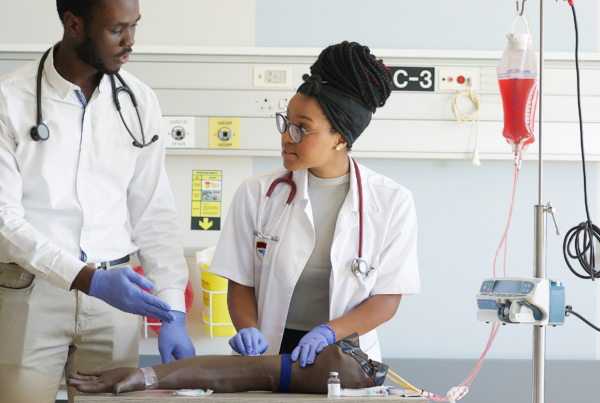Preparing for a blood draw can be a source of stress for many individuals, but proper hydration is a simple step that can significantly improve the experience. Understanding how much water to drink before blood draw and why it matters can make the procedure smoother for both patients and healthcare professionals.
This guide is tailored for individuals preparing for a blood draw, as well as for aspiring and current phlebotomists who aim to provide better care. The tone is formal yet approachable, combining professional insights with easy-to-understand language.
| Key Takeaways |
| Drink 8 Ounces of Water: Aim to consume this amount one hour before your blood draw for optimal hydration. |
| Avoid Dehydrating Substances: Stay away from caffeine, alcohol, and sugary drinks leading up to your appointment. |
| Hydrate Gradually: Consistent water intake throughout the day is more effective than drinking a large amount all at once. |
| Educate and Prepare: For phlebotomists, patient education on hydration can improve procedure outcomes and patient satisfaction. |
Why Hydration is Crucial for Blood draws
Hydration is often underestimated, although it plays an important role in successful blood draws. Proper hydration ensures:
- Enhanced Vein Visibility: When your body is well-hydrated, your veins become more visible and easier to access.
- Patient Comfort: Hydrated veins are less likely to collapse or cause pain, reducing the need for multiple puncture attempts.
- Accurate draw Results: Dehydration can cause blood to thicken, which might alter draw outcomes, especially for panels measuring blood components like electrolytes or glucose.
For both patients and healthcare professionals, the importance of hydration cannot be overstated.
The Standard Recommendation for Water Intake
The general guideline for how much water to drink before a blood draw is 8 ounces (one glass) consumed approximately one hour before the procedure.
This recommendation is sufficient for most individuals. It allows time for the water to be absorbed into your bloodstream, ensuring veins are properly hydrated by the time of your appointment.
Additional Tips
- Hydrate Throughout the Day: Drinking water consistently leading up to your appointment is more effective than consuming a large quantity at once.
- Adjust for Size and Activity: Larger individuals or those engaging in physical activity may require slightly more water to achieve proper hydration.
Factors Influencing Your Hydration Needs
While 8 ounces of water works for most, individual factors can affect how much you need to drink.
Body Weight
Larger individuals have more blood volume and may need more water to ensure their veins are well-hydrated. Conversely, smaller individuals might find that 8 ounces is more than enough.
Age
Older adults often have reduced thirst signals, which can lead to unintentional dehydration. If you’re older, it’s essential to monitor your hydration closely.
Physical Activity
If you exercise frequently or have recently worked out, your hydration needs may increase. Sweating depletes your body’s water reserves, making it important to replenish fluids before a blood draw.
Medical Conditions
Certain conditions, such as diabetes, kidney issues, or heart problems, may impact your hydration status. Consult your healthcare provider for personalized guidance.
The Risks of Being Dehydrated Before a Blood draw
Failing to drink enough water before your blood draw can lead to several complications:
- Difficult Vein Access: Dehydration causes veins to shrink, making them harder to locate and puncture.
- Prolonged Procedure: Multiple attempts to find a vein can result in a longer, more uncomfortable appointment.
- Inaccurate draw Results: Dehydration can alter the concentration of blood components, potentially skewing diagnostic results.
Tips for Staying Hydrated Before a Blood draw
- Start Hydrating Early
Begin increasing your water intake the day before your appointment. This ensures your body is adequately hydrated without feeling bloated. - Avoid Dehydrating Substances
Caffeine and alcohol can dehydrate the body. A minimum of 24 hours before your blood draws, refrain from consuming these drinks. - Consume Plain Water
Stick to plain water instead of flavored or carbonated drinks, especially if you’re fasting. Additives in other beverages might interfere with draw results. - Use Visual Cues
Check your urine color. Urine that is light yellow or clear suggests appropriate hydration.
Can You Overhydrate Before a Blood draw?
While staying hydrated is critical, overhydration can also pose challenges. Drinking excessive amounts of water in a short period may dilute your blood, potentially impacting draw results.
What is Overhydration?
Overhydration happens when you drink more water than your kidneys can handle. Symptoms include bloating, nausea, and in extreme cases, hyponatremia (low sodium levels).
How to Avoid Overhydration
- Stick to the general recommendation of 8-16 ounces spread over 1-2 hours before your appointment.
- Pay attention to how your body feels. If you’re already hydrated, additional water might not be necessary.
Special Considerations for Fasting Blood draws
Many blood draws require fasting, which typically means no food or beverages other than water for 8-12 hours before your appointment.
Can You Drink Water While Fasting?
Yes, plain water is usually permitted and even encouraged. It does not interfere with fasting and helps prevent dizziness or fainting during the blood draw.
Why Fasting draws Allow Water
Fasting ensures accurate measurement of certain blood components, such as glucose and lipids. Water, being calorie-free and neutral, does not affect these measurements.
Hydration Tips for Different Types of Patients
Children
Encourage children to sip water gradually. For younger kids, flavored electrolyte solutions (if permitted) might make hydration easier.
Older Adults
Provide reminders for older adults to drink water, as their natural thirst cues might be weaker.
Patients with Chronic Conditions
Consult a doctor to understand how hydration may interact with medical conditions or medications.
Phlebotomists: Helping Patients Stay Hydrated
As a phlebotomist, part of your role is to educate patients on proper preparation for blood draws. Offering hydration tips can improve patient outcomes and reduce the time spent on difficult vein access.
Best Practices for Phlebotomists
- Encourage patients to drink water when scheduling appointments.
- Have water available in the waiting area for last-minute hydration.
- Use a warm compress to help locate veins in dehydrated patients.
The Role of Phlebotomy Now School
At Phlebotomy Now School, we emphasize the importance of patient-centered care. Our programs prepare students to handle real-world scenarios, including advising patients on hydration and managing challenging blood draws.
What We Offer
- Hands-On Training: Learn techniques to access difficult veins and provide patient comfort.
- Expert Instructors: Gain insights from experienced professionals in the field.
- Comprehensive Curriculum: Cover all aspects of phlebotomy, from preparation to follow-up care.
By training with Phlebotomy Now School, you’ll be equipped to handle diverse patient needs confidently.
FAQs
Can I drink water before all types of blood draws?
Yes, plain water is allowed before most blood draws, even those requiring fasting. However, check with your healthcare provider for specific guidelines.
What should I do if I forget to drink water before my appointment?
Let your phlebotomist know. They may suggest drinking water on-site or use techniques like a warm compress to improve vein access.
How can I tell if I’m hydrated enough?
Light-colored urine and visible veins are good indicators of proper hydration.
Should I hydrate differently for fasting draws?
No, the same principles apply. Plain water is your best option to stay hydrated during fasting.
Conclusion: Hydration is Key to a Successful Blood draw
Staying hydrated before a blood draw is a simple yet crucial step to ensure comfort, efficiency, and accurate results. By drinking 8-16 ounces of water leading up to your appointment, you can prevent complications and make the experience smoother.
Phlebotomy Now School is dedicated to teaching future phlebotomists the best practices, including hydration advice, to enhance patient care. Explore our programs today and join a growing field where small steps like encouraging hydration make a big difference!
Take the First Step Toward a Rewarding Phlebotomy Career!
At Phlebotomy Now School, we empower aspiring phlebotomists with the skills and knowledge needed to succeed in the medical field. From mastering patient care to perfecting techniques like hydration guidance, our comprehensive programs ensure you’re ready to excel.
Enroll today and start your journey toward a fulfilling career in phlebotomy!


